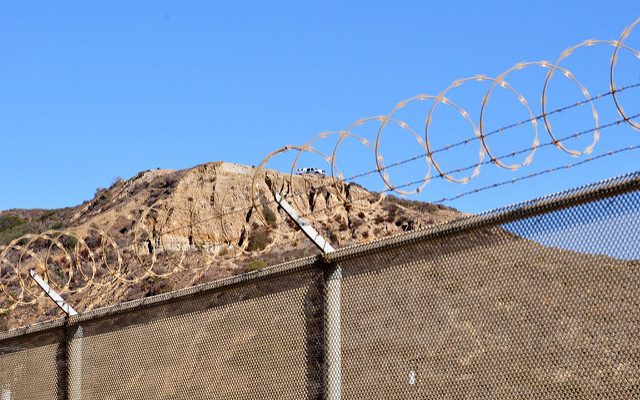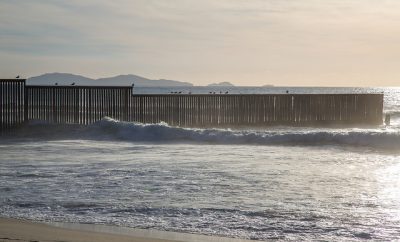 "Border Patrol" Courtesy of Jonathan McIntosh : License (CC BY 2.0)
"Border Patrol" Courtesy of Jonathan McIntosh : License (CC BY 2.0)
Law
SCOTUS Weighs Case of Teen Shot in Mexico by U.S. Border Patrol
On Tuesday, the Supreme Court began hearing arguments for Hernández v. Mesa, the case of a 15-year-old Mexican national who was fatally shot while on Mexico’s side of the border by a U.S. border patrol agent.
The parents of Sergio Adrian Hernández Guereca (Hernández) are arguing that their son’s constitutional rights were violated, even though he wasn’t standing on U.S. soil at the time of his death.
Hernández was killed in Juarez, Mexico in the summer of 2010 by U.S. Border Patrol Agent Jesus Mesa Jr., who was patrolling the U.S. border on a bicycle at the time of the incident. Mesa fired his weapon through the border fence at Hernández, who was hiding behind a pillar of the Paso Del Norte bridge, killing him.
According to the amicus brief, the family says Hernández and his friends “were merely playing a game, running up the back and down the incline of the culvert and touching the barbed wire fence that separates Mexico and the United States.”
The FBI claimed that Hernández and his friends were hurling rocks at the agent, however, video footage refuted that claim.
Hernández’s parents decided to sue Mesa in federal court, but the district court dismissed the claim. The case was then appealed to the 5th Circuit of Appeals, which also sided with Mesa. The family then appealed to the Supreme Court, which agreed to take the case in October of last year.
With Justice Antonin Scalia’s seat still vacant and Trump’s nominee, Judge Neil Gorsuch, still waiting for his Senate hearings to begin next month, we could very well have a 4-4 split decision–the court has been operating with only eight justices for just over a year. In the event of a tie, the court would defer to the lower court’s ruling that favors the agent.
But this isn’t the first time this type of case has been argued in court. An eerily similar shooting occurred in 2012 in Arizona, when a U.S. Border Patrol agent shot 16-year-old Jose Antonio Elena Rodriguez 10 times in the back and head through the slats of the border fence.
Rodriguez was also accused of throwing rocks at agents across the border and endangering their lives, but witnesses on the Mexico side claimed Elena Rodriguez was walking down the street when the other youths ran past just before the shooting started.
Following the shooting, Elena Rodriguez’s family and the ACLU filed a civil lawsuit against Agent Lonnie Swartz in the U.S. District Court in Tucson. The judges said they would not rule until after the U.S. Supreme Court decides on Hernandez v. U.S.
The cases “involve almost identical legal issues,” said attorney Sean Chapman, who represents Swartz in both the criminal and civil cases. “That’s what is interesting about it…It’s incredibility similar to the Rodriguez case in Arizona. I’m waiting to see what they do.”
If SCOTUS deadlocks, the 5th U.S. Circuit Court of Appeals ruling that Guereca’s family cannot sue the Border Patrol agent in the U.S. would stand in the 5th Circuit. Then the 9th Circuit may rule on the Elena Rodriguez case, Chapman said.








Comments